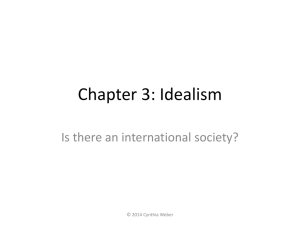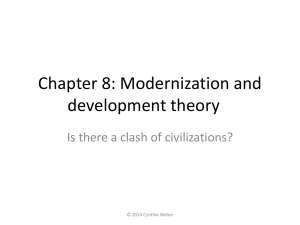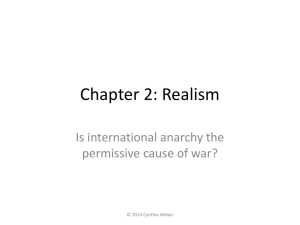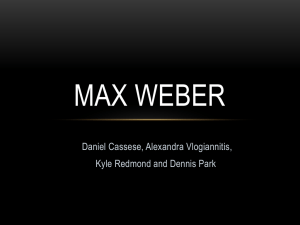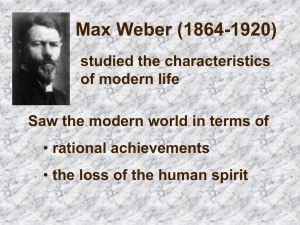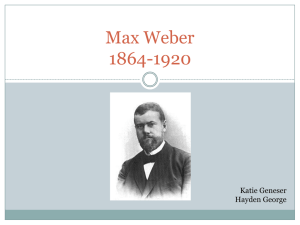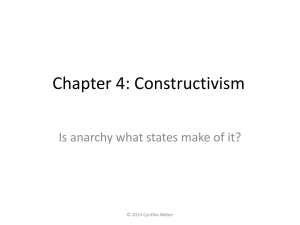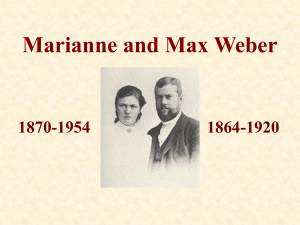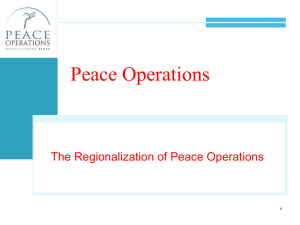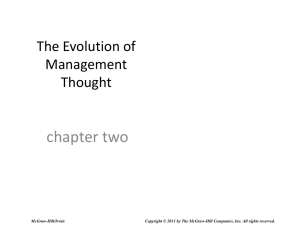Chapter 9: Environmentalism
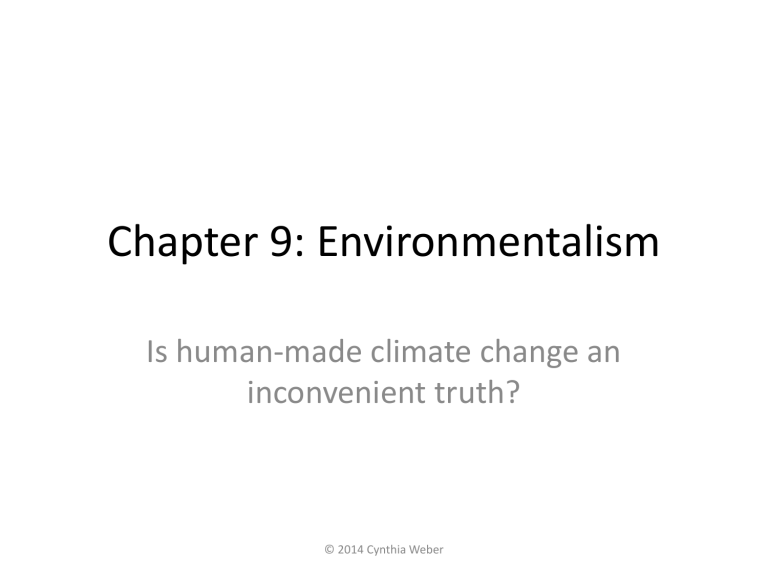
Chapter 9: Environmentalism
Is human-made climate change an inconvenient truth?
© 2014 Cynthia Weber
Learning aims:
Understand what the myth “humanmade climate change is an inconvenient truth”
means and how it functions
Understand the core principles of environmentalism and green politics
Explore the similarities and differences between Gore’s idealism and a typical idealist
Critically engage with the notion of
“inconvenience” in
© 2014 Cynthia Weber
Gore’s myth
Last week: Modernization and development theory
Myth: “there is a clash of civilizations”
Key concepts: Identity, desire, culture
Identities are not the stable entities that Huntington wishes them to be. They are inherently unstable and fragmented
© 2014 Cynthia Weber
Environmentalism Flashcard:
Key thinkers:
Al Gore
Matthew
Paterson
Key concepts:
Green Politics
Climate change
Truth
Myth: “human-made climate change is and inconvenient truth”
© 2014 Cynthia Weber
Gore’s idealist assumptions (table 9.1)
Gore’s idealist assumptions (table 9.1)
Assumptions typical of idealism Assumptions atypical of idealism
• Humans are good by nature
• Progress is possible
• Bad things happen because of bad organization
• Conflict is not inevitable
• Collective action can redress
• Human-environmental conflict is more urgent than human-human conflict at this moment in history
• International society must address itself to the new environmental security problem injustice and avoid conflict
• International society can solve global problems by tacking human-made climate change
• The preservation of the planet must become our new organizing principle
© 2014 Cynthia Weber
The core premise of environmental/green theory (box 9.1)
What is the core premise of environmental/green theory and the foundation for environmental/green political action?
Our received wisdom about the relationship between nature and culture (that humans should dominate nature and extract from it whatever humans want and need) must be questioned
© 2014 Cynthia Weber
Why is this the case?
Because the current human/nature relationship is literally killing humans, other species, and the planet as a whole
What An Inconvenient Truth says and does not say
What An Inconvenient
Truth says and how it says it
(box 9.2)
What the film says:
Human-made climate change is and inconvenient truth that can be solved by humans because it is a human-made problem.
How the film says it:
By using the “factual” documentary film form
What An Inconvenient
Truth does not say and how it does not say it
(box 9.3)
What the film does not say:
Any controversial details, policy recommendations or troubling contradictions in Gore’s argument.
How the film does not say it:
By glossing these aspects of Gore’s argument that appear in his earlier work on the environment
© 2014 Cynthia Weber
Gore’s Global Marshall Plan (1992: 305-7)
1. The stabilization of the worlds population
2. The rapid creation and development of environmentally appropriate technologies
3. A comprehensive an ubiquitous change in the economic “rules of the game” by which we measure the impact of our decisions on the environment
4. The negotiation and approval of a new generation of international agreements
5. The establishment of a cooperative plan for educating the
6. The establishment, especially in the developing world – of social and world’s citizens about our global environment political conditions most conducive to the emergence of sustainable
© 2014 Cynthia Weber societies
Theory activity: Ontology and
Inconvenience
1. Watch
An
Inconvenient
Truth
2. Reflect
3. Discuss
What is its core message?
Who is encouraged to act on behalf of the environment?
What is the role of US citizens, the US state and corporations respectively?
Does the film answer
Patersen’s call to move from
“anthropocentric” to an
“ecocentric” ontology?
Is it possible to maintain neoliberal economic growth and be environmentally friendly?
Is this an “inconvenient truth” for everyone? Is it equally inconvenient for everyone?
Does it matter?
© 2014 Cynthia Weber
How does the film WALL-E make sense of the world? (box 9.4)
• By suggesting that the inconvenient truth of human-made climate change created an environmental catastrophe so severe that the earth could no longer support life; and
• By claiming that what has been lost with the earth’s ability to sustain human life is the ability for humans to sustain meaningful relationships, either with the earth or with one another
© 2014 Cynthia Weber
What is typical and deviant in the world of WALL-E? (boxes 9.5 and 9.6)
Typical
What is typical is for humans to have abandoned inconvenient earth to machines like WALL-E and opted to live instead in hyper-convenient corporatized space where human consumption can carry on uninterrupted
Deviant
What is deviant is for humans to overthrow the directive of the
Buy N Large corporation and return to inconvenient earth to try to live there again
© 2014 Cynthia Weber
What must go without saying in order for Gore’s myth to appear to be true?
(box 9.7)
That human-made climate change is not necessarily inconvenient for
(particularly US-based) global corporations because Gore’s solutions to the problem of global warming do not require corporations to sacrifice economic growth to some presumed
“environmental sustainability”
© 2014 Cynthia Weber
Film activity: Animated Politics
Watch
• Trailers for WALL-E, An Inconvenient Truth and Avatar
Answer
• What is the difference between these trailers?
• How do these films present their message differently?
• How does it matter that one is animated (WALL-E), one is not (An
Inconvenient Truth) and one is a mix (Avatar)?
Discuss
• What can animation do that films cannot?
• What can non-animated films or documentaries do that animation cannot?
• Why do you think both WALL-E and Avatar resort to “made up” characters to show “human” emotion and question “human” relations to the earth and the environment?
© 2014 Cynthia Weber
Film: The
Hunger
Games
Next week: Anarchism
Liberty
Public/
Private
Action
Are we the 99%?
© 2014 Cynthia Weber
